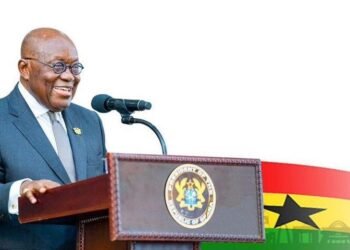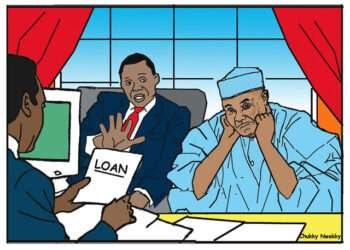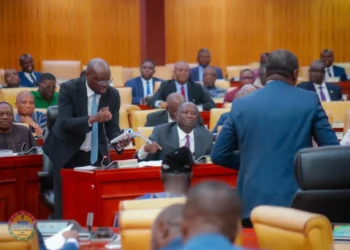The National Security Minister, Albert Kan-Dapaah has expressed worry that persons in academia, civil society organizations (CSOs), and the media are using their platforms to propagate false narratives in support of coups and military rule.
According to him, these groups of people have gained a substantial following on social media, which they are using to propagate misinformation, capable of threatening Ghana’s peace and stability.
He stated this during a conference on October 19, 2023, at the Accra International Conference Centre in Accra, with the theme the: ‘Impact of Disinformation on Electoral Integrity, Peace, and Security in Africa’.
Following the severe and devastating destruction of the flood in some communities in the Volta Region occasioned by the spillage of the Akosombo and Kpong dams’, one would be surprise that the National Security Minister did not take the opportunity at the said conference and speak about the bizarre and ineffective coordination, collaborations and communications among state agencies in the spillage of the dams.
Even though, the Volta River Authority has indicated that as part of its emergency preparedness towards the spillage exercise it engaged stakeholders, reports from residents in the affected communities contradict the claims.
Even if the Volta River Authority did engage the people and other state entities before it undertook its exercise, does the response from the National Disaster Management Organization not expose the weaknesses of such engagement?
Humanitarian Crisis On The Rise Amidst Nation’s Inadequacies
The people who live closest to the Volta River; farmers, fishermen, and locals—have taken the brunt of the Akosombo Dam overflow.
Farmland is underwater, their properties are flooded, and their fish cages are ruined. According to estimates, the damages have cost several million cedis in financial losses and over twenty-six thousand residents displaced.
The Akosombo Dam’s operating and regulatory body, the VRA, is accused of failing to take the necessary precautions to avoid destroying homes and livelihoods.
Residents of the community have stressed the need for cooperation and consultation by the Volta River Authority to avert such catastrophic events for those residing downstream of the river going forward.
The Volta River Authority partners in the discharge of its mandate include; the Ghana Metrological Agency, the National Disaster Management Organization, and local authorities among others but yet from all indications both before and aftermath of the spillage exercise prove there was no such proper coordination and collaborations among them.
How would state agencies mandated to discharge their responsibility in the interest of the public lose completely to uphold such a sacred and onerous task.
In this 21st century, it beats any logic that such exercise was undertaken with a very minimal level of coordination, collaboration and communication among state institutions.
The residents and communities affected by the spillage are completely overwhelmed by the sheer magnitude of the damage the exercise has caused. This is simply because someone else failed to do his or her job.
In the best of all worlds, programs, and policies of state institutions or agencies are required to be done in a manner that would ensure integration among each other.
Any activity by state agencies or institutions that influences or affects the livelihood of citizens ought to be done in a manner that ensures synergy, or at a minimum rate reducing crisis.
Of course, we do not live in that perfect world which is why there is an urgent need for activities programs and policies of state agencies or institutions to be well coordinated in their discharge or implementations.
How does one explain that a sensitive activity of state agencies like the Volta River Authority was done with little coordination, collaboration and communications with other state institutions?
This is something that Ghanaian junior high school students or senior high students read and learn about in their Social Studies class.
With the increasing rate of problems particularly the issue of climate and the need for the government to work towards the attainment of sustainable development goals, there is an urgent call for proper and effective coordination, collaboration and communications among state institutions in the discharge of their mandate.
It is undoubtedly the ideal way to a better and safer Ghana.





















